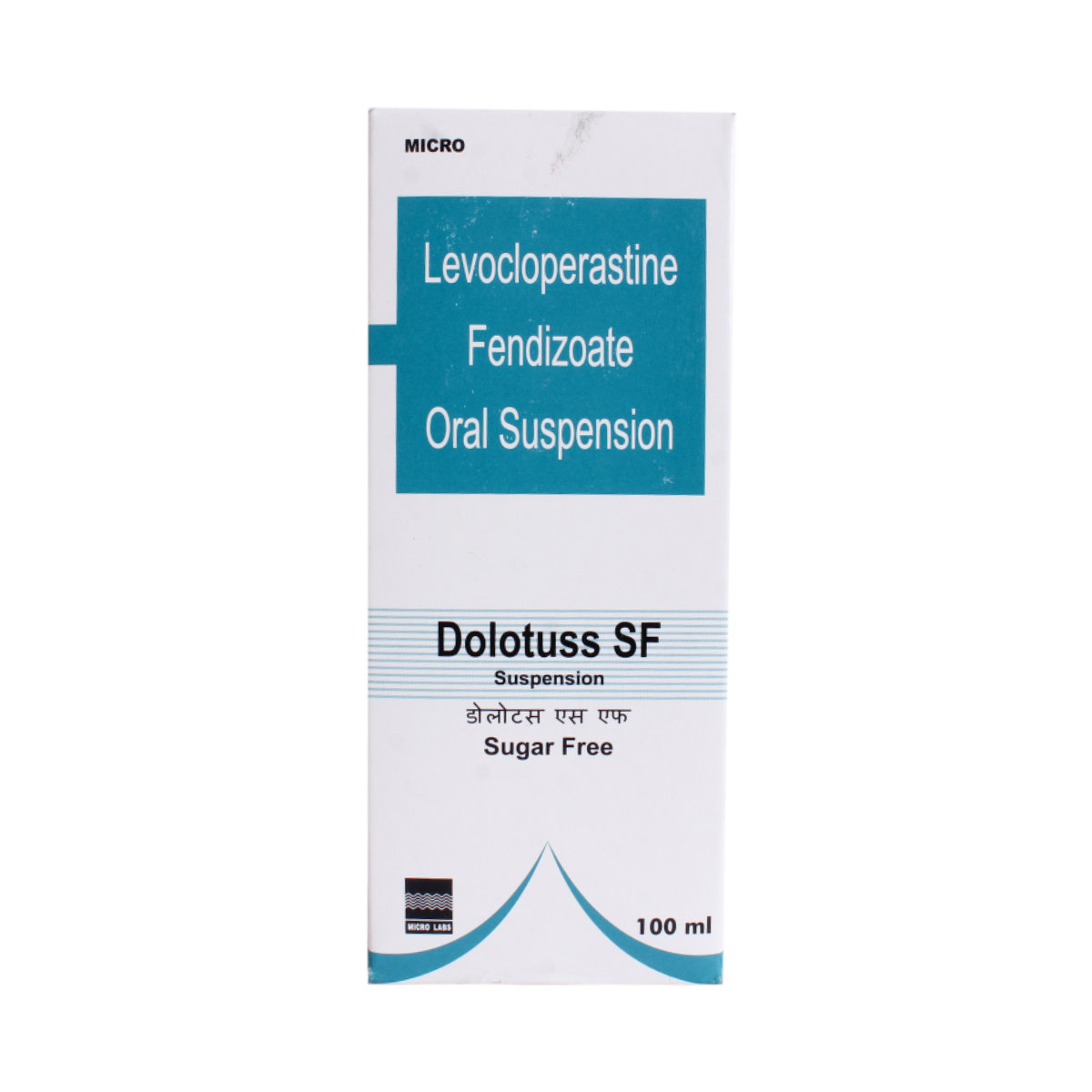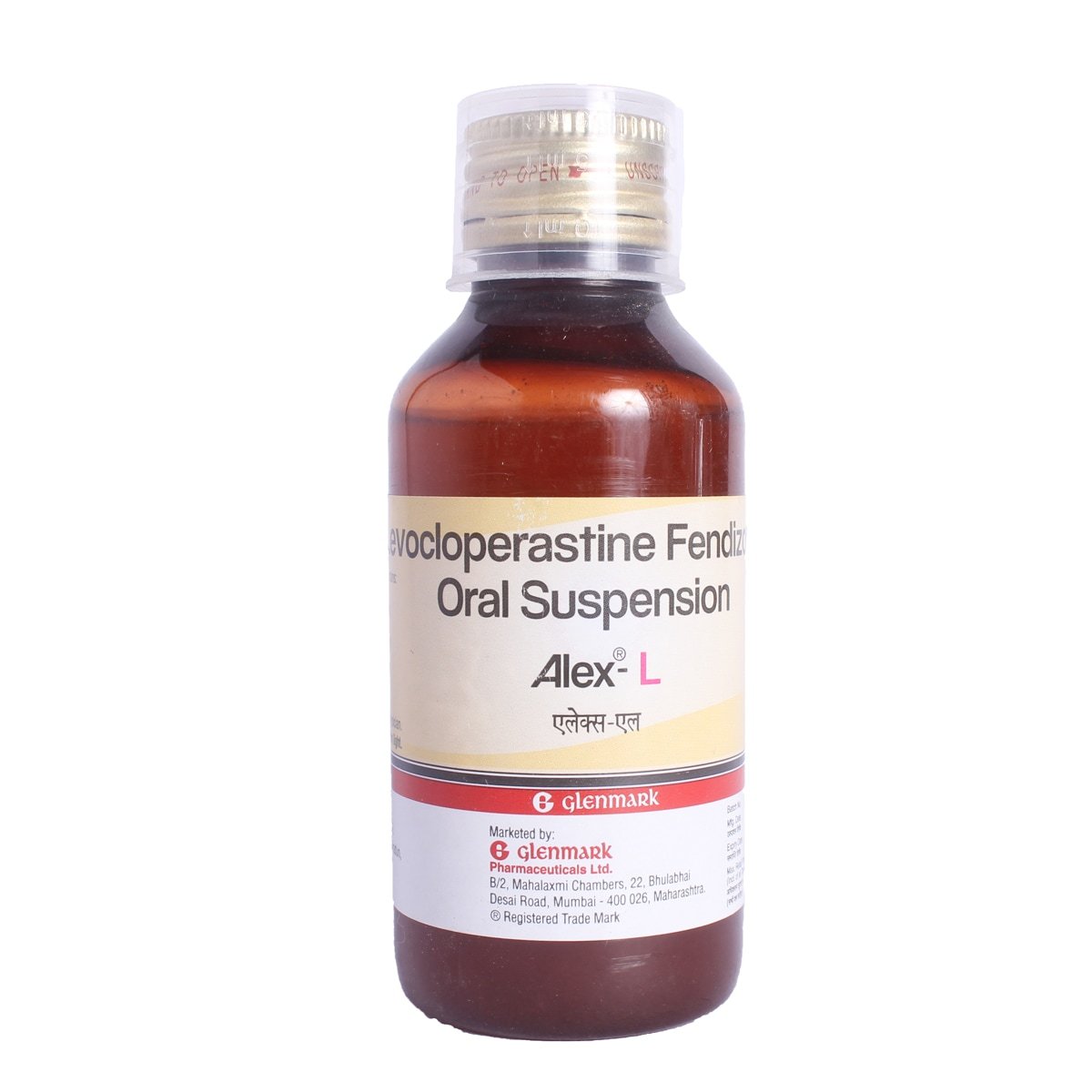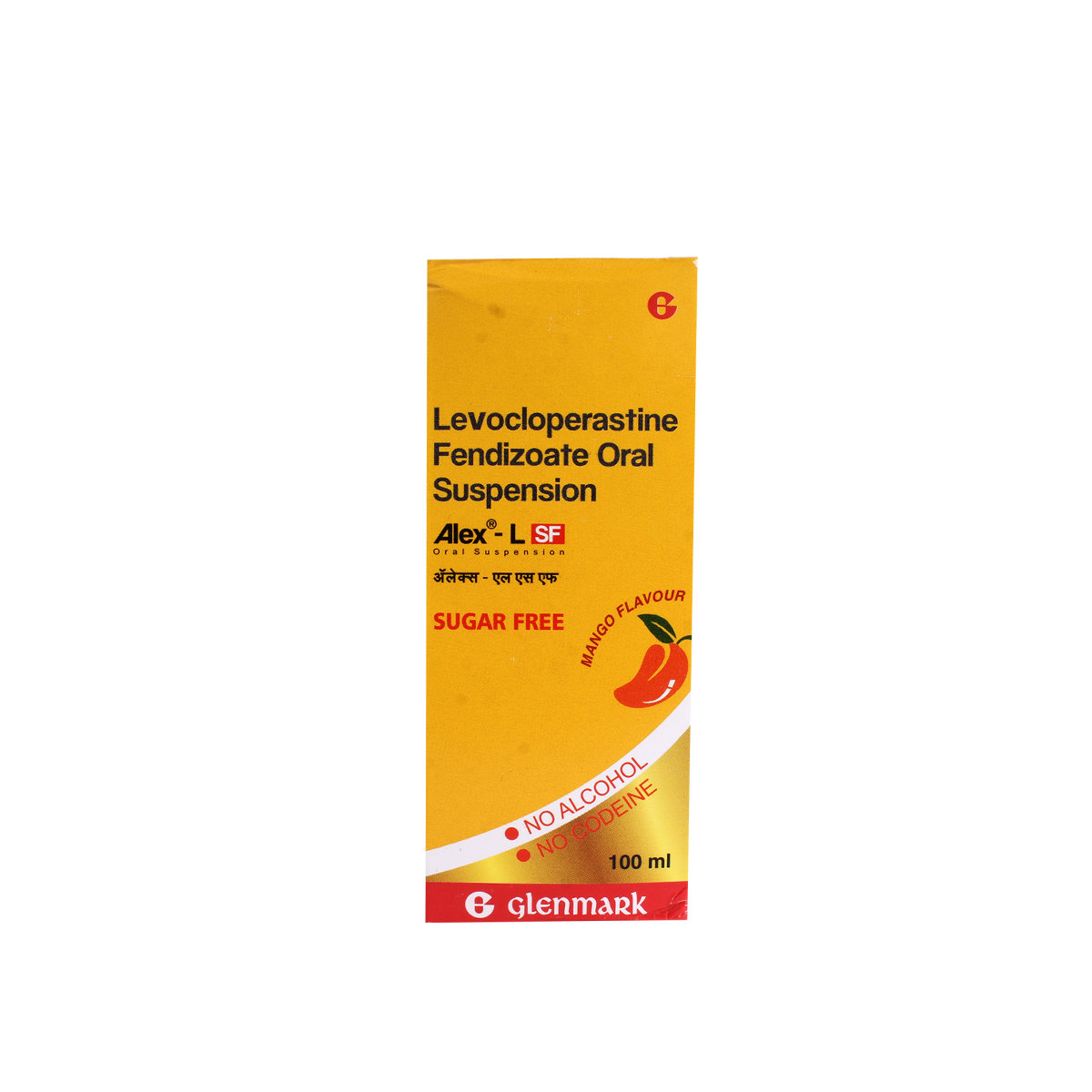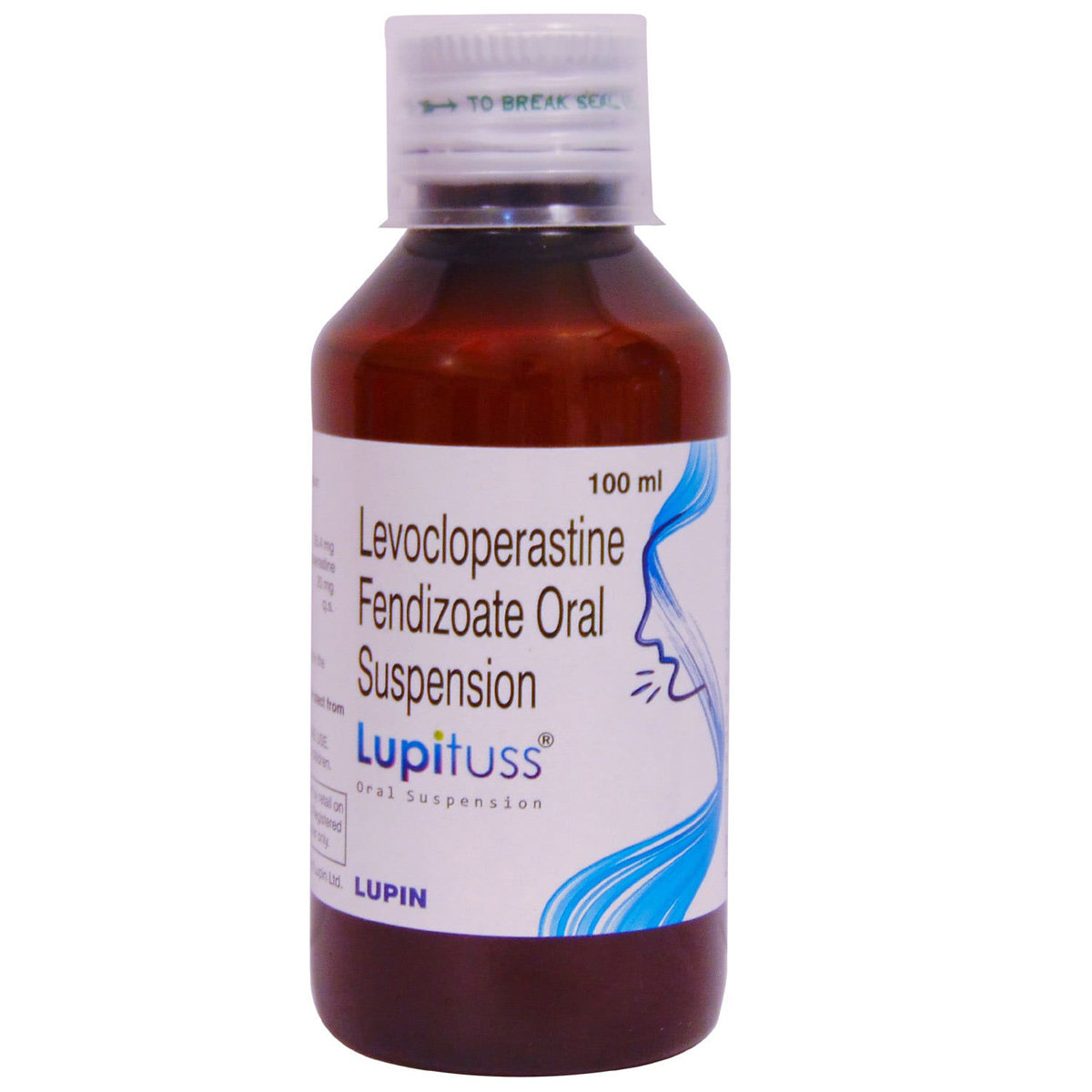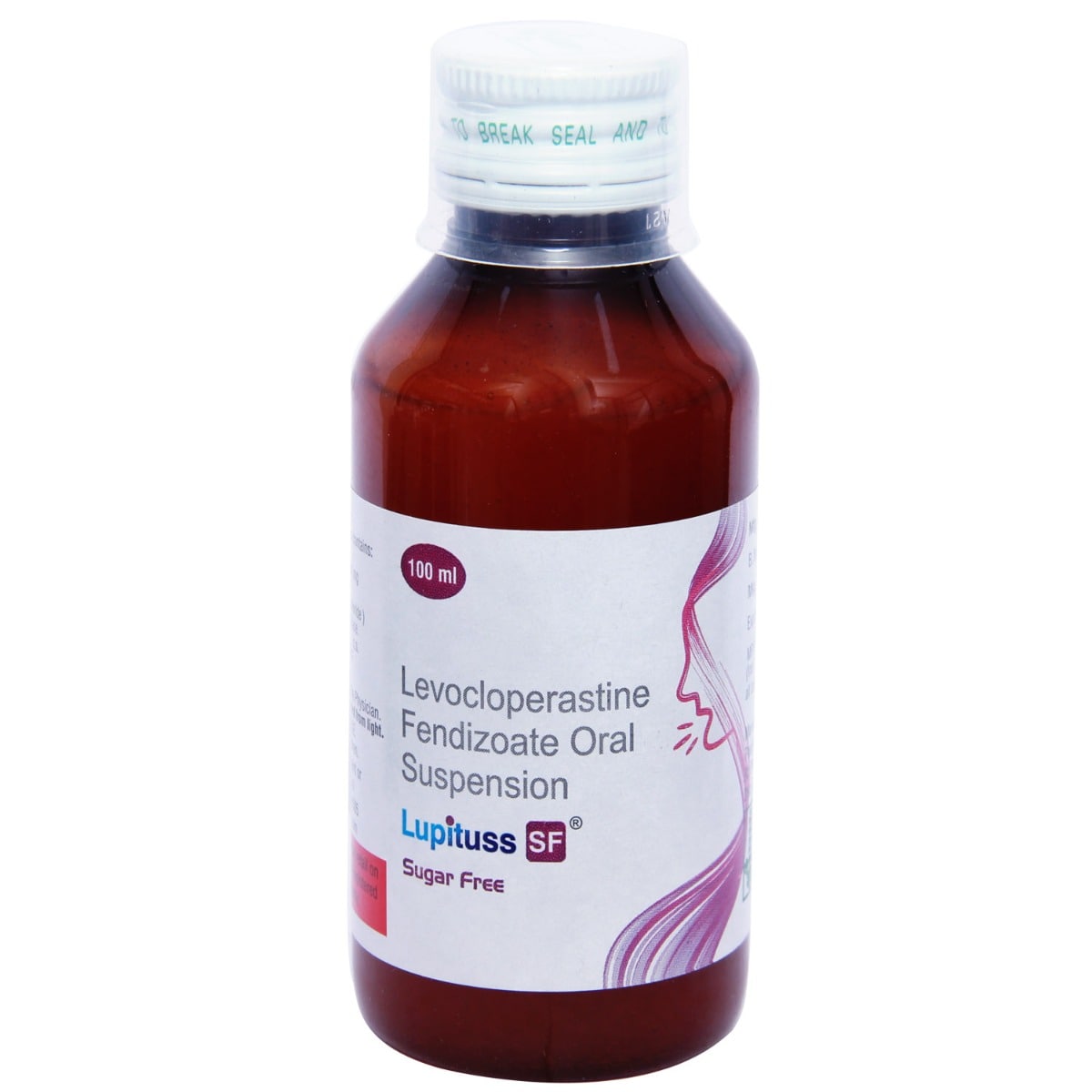Levocloperastine Fendizoate
About Levocloperastine Fendizoate
Levocloperastine Fendizoate contains an anti-tussive (relieve cough) medication primarily used to treat dry cough. A cough is a reflex action that helps to clear any foreign irritant or mucus in the throat. Mostly cough lasts for a short time (two to three weeks), so it is acute. But sometimes, if it is persistent for more than eight weeks which can lead to chronic cough. Dry cough refers to cough where there is no mucus or secretion along with cough.
Levocloperastine Fendizoate contains levocloperastine fendizoate, which is a cough suppressant. It works by blocking the cough receptor present in the brain, which is known to cause cough. Levocloperastine Fendizoate is generally prescribed for short term treatment of dry cough. It is also used to treat chronic cough or coughs caused due to smoking, emphysema and asthma.
Take Levocloperastine Fendizoate as prescribed by your doctor. You are advised to take Levocloperastine Fendizoate for as long as your doctor has prescribed it for you depending on your medical conditions. You may experience nausea, drowsiness, palpitations (racing or skipping heartbeat), dryness in the mouth, dizziness, fainting, headache, fatigue, loss of appetite (not feeling hungry), hydrodipsomania (periodic episodes of uncontrollable thirst), sleepiness. Most of these side effects of Levocloperastine Fendizoate do not require medical attention and gradually resolve over time. However, if the side effects persist or worsen, please consult your doctor.
If you are known to be allergic to Levocloperastine Fendizoate or any other medicines, please tell your doctor. Levocloperastine Fendizoate should not be taken in the conditions like high blood pressure and diabetes mellitus. Increase the intake of fluids so that the mucus present loosens and the throat remains lubricated. Before taking Levocloperastine Fendizoate mention all the OTC medicines you are talking to your doctor. If you are pregnant or breastfeeding, please inform your doctor before starting Levocloperastine Fendizoate. Levocloperastine Fendizoate should not be used in children below 2 years of age as safety and efficacy have not established. Levocloperastine Fendizoate may cause drowsiness, sleepiness and dizziness it is advisable to you do not drive unless you are alert.
Uses of Levocloperastine Fendizoate
Medicinal Benefits
Levocloperastine Fendizoate is primarily used to treat dry cough. Levocloperastine Fendizoate contains ‘levocloperastine fendizoate’, which is a cough suppressant. It works by blocking the cough receptor present in the brain, which is known to cause cough. Levocloperastine Fendizoate is generally prescribed for short term treatment of dry cough. It is also used to treat chronic cough or cough caused due to smoking, emphysema and asthma.
Directions for Use
Storage
Side Effects of Levocloperastine Fendizoate
- Nausea
- Drowsiness
- Palpitations (racing or skipping heartbeat)
- Dryness in mouth, dizziness
- Fainting
- Headache
- Fatigue
- Loss of appetite (not feeling hungry)
- Hydrodipsomania (periodic episodes of uncontrollable thirst)
- Sleepiness
Drug Warnings
Do not take Levocloperastine Fendizoate if you are allergic to Levocloperastine Fendizoate or any ingredients of Levocloperastine Fendizoate. Increase the intake of fluids so that the mucus present loosens and the throat remains lubricated. Also, mention all the OTC medicines you are talking to your doctor before taking Levocloperastine Fendizoate. Levocloperastine Fendizoate should not be taken in the conditions like high blood pressure, thyroid disease, kidney, liver, heart disease and diabetes mellitus. Levocloperastine Fendizoate should not be stopped abruptly as it might lead to withdrawal symptoms like irritability, anxiety, diarrhea, restlessness, increased blood pressure. If your condition does not improve or your cough comes back or occurs with fever, rash, please visit the doctor immediately as this could be serious. You must tell your doctor if symptoms do not get better within 7 days of the treatment. Do not smoke as it might worsen your symptoms, so avoid tobacco intake. If you are pregnant or breastfeeding, please inform your doctor before starting Levocloperastine Fendizoate. Levocloperastine Fendizoate should not be used in children below 2 years of age as safety and efficacy have not established. Levocloperastine Fendizoate may cause drowsiness, sleepiness and dizziness it is advisable to you do not drive unless you are alert.
Drug Interactions
Drug-Drug Interaction: Levocloperastine Fendizoate may interact with antidepressant medicines (fluoxetine, sertraline, fluvoxamine), and medicines used for mental alertness (armodafinil, atomoxetine, amphetamines).
Drug-Food Interaction: No interactions found.
Drug-Disease Interaction: Levocloperastine Fendizoate should be used with caution in increased blood pressure and diabetes patients.
Drug-Drug Interactions Checker List:
Safety Advice

Alcohol
unsafeAvoid consumption of alcohol with Levocloperastine Fendizoate as it may increase drowsiness. Please consult a doctor before consuming alcohol with Levocloperastine Fendizoate.

Pregnancy
cautionThe safety of Levocloperastine Fendizoate in pregnancy is unknown, so it should be taken only if prescribed by a doctor.

Breast Feeding
cautionThe safety of Levocloperastine Fendizoate in breastfeeding women is unknown, so it should be taken only if prescribed by a doctor.

Driving
unsafeLevocloperastine Fendizoate may cause drowsiness or tiredness in some people. Therefore, drive only if you are alert after taking Levocloperastine Fendizoate.

Liver
cautionTake Levocloperastine Fendizoate with caution, especially if you have a history of Liver diseases/conditions. The dose may be adjusted by your doctor as required.

Kidney
cautionTake Levocloperastine Fendizoate with caution, especially if you have a history of Kidney diseases/conditions. The dose may be adjusted by your doctor as required.

Children
cautionLevocloperastine Fendizoate is not recommended for children below the age of 2 years.
Habit Forming
Diet & Lifestyle Advise
- Wash your hands with soap and water regularly to prevent the spread of germs.
- Eat plenty of foods rich in good bacteria like yogurt to improve overall health.
- Drink plenty of fluids to avoid dehydration.
- Gargle with salt water for relief from sore throat.
- Do not smoke as it might worsen your symptoms, so avoid tobacco intake.
- Avoid alcohol consumption with Levocloperastine Fendizoate as it may cause tiredness, drowsiness or lack of concentration.
Special Advise
Should be used with caution in elderly patients as it may lead to unwanted adverse events.
Patients Concern
Disease/Condition Glossary
Cough: It is a reflex action that helps to clear any foreign irritant or mucus in the throat. Mostly cough lasts for a short time (two to three weeks), so it is acute. But sometimes, if it is persistent for more than eight weeks which can lead to chronic cough. If the cough is accompanied by blood or barking cough, this could be serious and require medical attention. The most common causes of cough are cold/flu, asthma, emphysema, COPD (chronic obstructive pulmonary disease). Also, some medications, especially angiotensin-converting enzyme inhibitors used for hypertension, are known to cause cough.
FAQs
Levocloperastine Fendizoate is primarily used to treat dry cough. Levocloperastine Fendizoate contains levocloperastine fendizoate , which is a cough suppressant. It works by blocking the cough receptor present in the brain, which is known to cause cough. Levocloperastine Fendizoate is generally prescribed for short term treatment of dry cough. It is also used to treat chronic cough or coughs caused due to smoking, emphysema and asthma.
No, Levocloperastine Fendizoate should not be stopped abruptly without consulting your doctor as it might lead to withdrawal symptoms like irritability, anxiety, diarrhoea, restlessness, increased blood pressure. So, please consult your doctor and he might lower your dose gradually depending upon your condition.
Yes, Levocloperastine Fendizoate may cause drowsiness, so operating any machinery or driving a car, doing an activity that requires concentration and alertness should be avoided.
Yes, dry coughs frequently are caused by allergies. Cough-modified asthma and upper airway cough syndrome are syndromes linked with certain allergies. Gastroesophageal reflux disease (GERD) can also lead to coughing that gets worse with food allergies.
A dry cough worse at night may be due to asthma, gastroesophageal reflux disease (GERD) and post-nasal drip. GERD can worsen at night when you lie down as stomach contents, especially stomach acid, can reflux out of the stomach and may lead to a cough. Asthma can be due to dry air, cold, frequently present at night. Post-nasal drip can also lead to more coughing when you lie flat.

